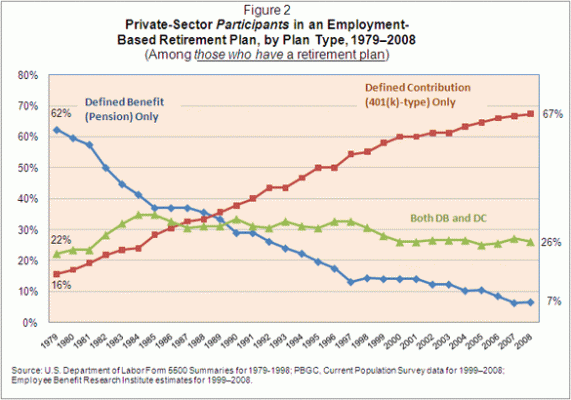Texas Proud
Give me a museum and I'll fill it. (Picasso) Give me a forum ...
- Joined
- May 16, 2005
- Messages
- 17,264
Based on your career experience, which of the two paths would you take?
1. Stable company, pension/good benefits, good hours. Most likely stay in one company until retirement.
2. Change jobs every 2-5 yrs. More interesting than #1. No pension. Uncertain hours. Salary 30% higher than #1.
#1 is the traditional stay in blue chip company until you retire and #2 is more of a silicon valley programmer types who change jobs often but gets to do different things. Which route would you take if you can start over again and why?
I have read other posts... but will throw in my 2 cents...
Why do you think that #1 does not have more interesting opportunities... is it a small company?
I worked at a big company for 5 years that failed... got hired on with the company that bought it... and worked another 15... then got laid off...
But, I got promotions during the first 5 years that had me do different things...
Then had a completely different job for 1 year... transferred to another completely different job for 5 more... then after the management screwed things up moved to another different job for another 2 years.... this lead me to be sent to London for a 'short time' that turned into about 14 months (the company picking up the cost of my place)... which lead me to be in NY where I worked for 3 years with the company also paying for my apartment... and finally back to Texas for the remainder of the time... Now, all my jobs were accounting or finance related, but they were all over the board on what I did... and many were very interesting....
Now, I am at a small company with lower pay but it is stable and good hours and a decent commute.... it is boring, but I do not mind that much... I just want a paycheck with good working conditions... I got it...

